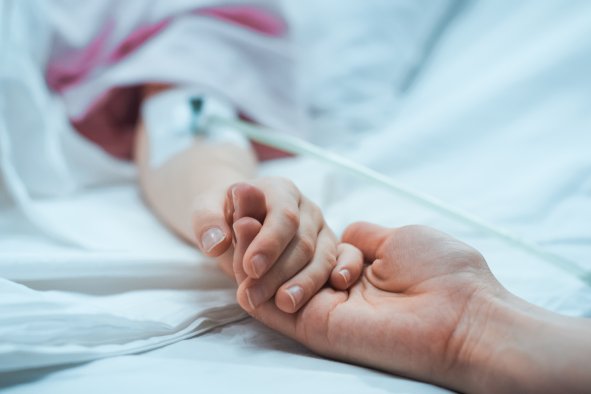The Centers for Disease Control and Prevention (CDC) has issued advice to parents of young children as Tropical Storm Helene continues to intensify as it hurtles toward the Gulf Coast.
Climate scientists predict that Helene will be the strongest hurricane to make landfall in the U.S. this season, with it expected to hit the coast on Thursday evening.
"If it makes landfall as a Category 4 hurricane, then that's incredibly serious," Dann Mitchell, a professor of climate science specializing in extreme weather events at the University of Bristol, U.K., previously told Newsweek.
In a post on X, formerly Twitter, the National Weather Service (NWS) warned that, as of 11:30 a.m. ET on September 25, the storm was nearing hurricane strength. Warnings of "life-threatening storm surges" are in place along the entire west coast of the Florida Peninsula and Florida Big Bend and a hurricane warning is now in effect along portions of the Big Bend.
"Preparations to protect life and property should be completed by tonight since tropical storm conditions are expected to begin to reach the Florida Peninsula in the overnight hours," the NWS said in a post on X on September 25.
Thousands of Floridians in at-risk areas have received evacuation orders, and the CDC Division of Reproductive Health has put out a statement to affected parents on how to keep your baby safe.
"Take actions to help your baby sleep safely if you need to leave your home for #TropicalStormHelene," the department said in a post on X.
Among its recommendations, the CDC said it is important to plan ahead to ensure the safest sleeping arrangements for your baby. "Be sure your baby sleeps on his or her back in a portable crib or bassinet during naps and at night," they said.
They added that the crib or bassinet should not contain pillows, blankets, or toys.
Ahead of severe weather events, the department recommended preparing an emergency kit, to include at least three days' supply of food and water for each person, health supplies like medication, baby care products, backup chargers and batteries.
The health department has also issued advice for new or expectant mothers:
- If you are pregnant or were recently pregnant, avoid hard physical work or disaster cleanup work.
- If your home has been affected by flooding, mold may have started to grow. If you are pregnant or have a young infant, avoid entering a building with mold damage.
- After stormy weather or severe flooding, avoid touching or walking in floodwater, and wash any parts of your body that come in contact with it.
Is there a health problem that is worrying you? Let us know via health@newsweek.com. We can ask experts for advice, and your story could be featured in Newsweek.
Disclaimer: The copyright of this article belongs to the original author. Reposting this article is solely for the purpose of information dissemination and does not constitute any investment advice. If there is any infringement, please contact us immediately. We will make corrections or deletions as necessary. Thank you.



